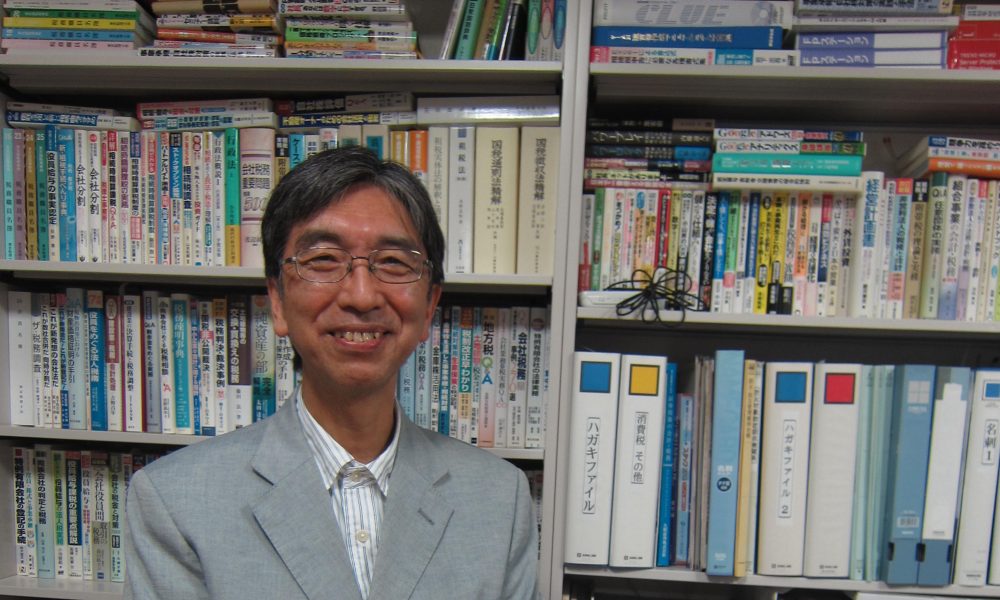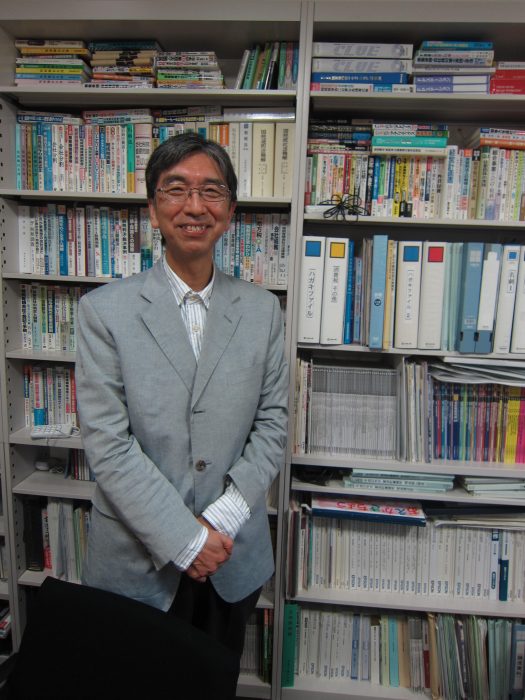
Words to Live by: Accountant Mitsuo Tsuchida
Interview by Judit Kawaguchi
Everyone is an artist. I provide tax services instead of writing music, but my life is still full of creativity. What we do for a living doesn’t matter. How we do it does. No matter the situation, we can choose whether to create a good or a disturbing experience for ourselves or others. I always try to make people feel better, not worse, even when I have to tell them bad news. I focus on finding solutions that are as creative as possible.
You get more by sharing than hoarding. According to some Buddhist teachings, heaven and hell are equally beautiful places and both are full of delicious foods. Yet people in hell are skinny and miserable. Do you know why? Because although in both places the chopsticks are very, very long, making it too difficult for people to pick up food with, and put it in their own mouths, those in heaven, feed each other, while people in hell just try to stuff their own faces.
Writing a will is a priority if you have someone you love and care about. Everyone knows that they may die suddenly, yet most people don’t prepare a will because they assume that without one, their assets will automatically go to their spouse or partner and their chil- dren. Not true. If a foreign national dies in Japan, his or her country and state laws take priority over Japanese law. The Japanese tax office will require the widow or widower to track down the dead spouse’s relatives around the world, and divide the assets according to his or her birth country’s laws. This procedure is extremely time- and money-consuming, and in some cases, 50 percent or more of the assets gets divided between relatives, while the rest goes to the surviving spouse. If the relatives are alive, they have a right to the assets, even if the deceased did not want them to receive anything. And if the relatives are dead, proof of their deaths must be submitted to the Japanese tax office.
Just imagine procuring death certificates for your spouse’s dead relatives, whether you have met them or not! Things aren’t any easier if the deceased spouse is a Japanese national. If there is no will, a portion of the assets automatically goes to the parents and siblings. If the couple had no children, the percentage that goes to relatives, not to the surviving spouse, is significant. Without a will, custody battles over children are also common between the surviving spouse and the parents or relatives of the deceased — especially if one spouse is a foreign national. And same-sex couples, face special difficulties, so for them a will is a must. Immediately, if not sooner!

Taking the lion’s share is not even good for the lion. Sure, he can eat a lot today, but what about tomorrow? Soon everything will escape from his sight. Yet some Japanese are becoming more aggressive because they’ve been miseducated that being a smart business person means taking more than others.
Not knowing the law doesn’t protect you from prosecution, even across borders. The United States requires a lot from its citizens and green card holders. For example, every U.S. citizen and permanent resident must file yearly U.S. tax returns, even if they live and pay taxes in another country. Recently, another obligation has been imposed: Americans and green card holders must report details about their bank accounts to the U.S. government. This is according to the Foreign Bank and Financial Account Reporting (FBAR) and its rules require U.S. citizens and those with green cards who have foreign accounts and trusts worth more than an aggregate value of $10,000 to file annual reports with the Treasury Department. Failure to do so results in stiff penalties.
In today’s age, the idea of citizenship should be reconsidered. I have several Japanese clients who were born in the U.S. and returned to Japan at the age of one or two. They have never been back to the U.S. since then and they consider themselves Japanese, but unbeknownst to them, they are still U.S. citizens because they were born in the U.S. These “accidental Americans” have the same obligation to file yearly income tax returns to the IRS as U.S. citizens do. They must also report their Japanese bank accounts as required by FBAR. But as we say in Japanese, “shikataganai” — this can’t be helped.
A rich person is someone who spends on others, no matter how poor he or she may be. Most religions teach that we should give at least ten percent of our income to others who aren’t family. And if we have no income, time can be the currency.
A version of this interview was published by the Japan Times
This QuoteWriting a will is a priority if you have someone you love and care about. — Mitsuo Tsuchida